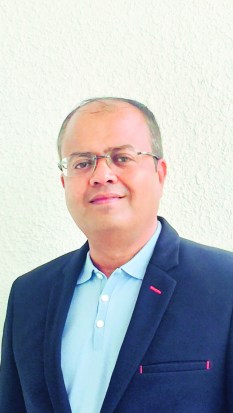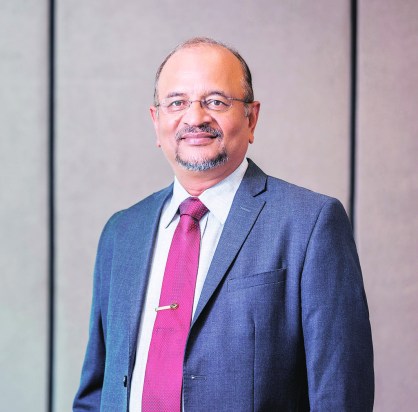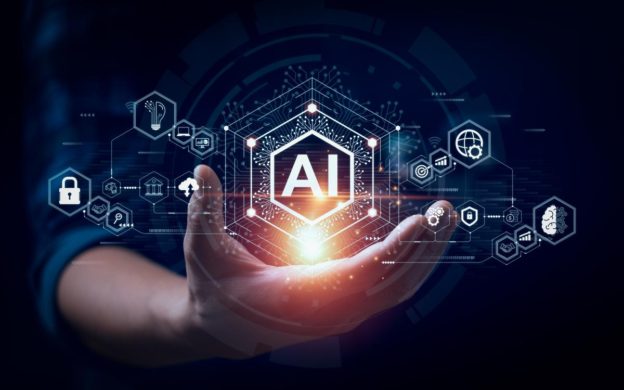IBM recently launched its enterprise artificial intelligence (AI) and data platform watsonx which is set to transform the way businesses tap into the vast potential of the technology. While its benefits are expected to be reaped by companies worldwide, what may not be widely known is the stellar role played by IBM’s India team in the making of this game-changing platform.
“IBM’s software and research labs, here in India, have played a significant role in the design and development of the components of this platform and its applications in collaboration with its partners. Several teams with years of experience and expertise in working with Large Language Models, hybrid data management, and AI governance capabilities based out of IBM’s labs in Bengaluru, Kochi, Hyderabad, Ahmedabad, Pune, and Delhi along with their global counterparts had been working on building this platform,” says Gaurav Sharma, vice president, IBM India Software Labs.

Big Blue’s software lab in Kochi houses an Automation Innovation Centre that allows IBM and its ecosystem partners to co-create products in AI-powered automation areas like business automation, AIOps and integration. “We also have design studios at our software labs in Kochi and Ahmedabad that develop solutions leveraging global design techniques, agile methodologies and advanced technologies including AI,” he explains.




Innovation across industries
At Siemens Healthineers, a giant in the medical technology space, its development centre in India has been instrumental in driving innovation and digital transformation across its healthcare solutions portfolio.
“India team has significantly contributed to our new enterprise imaging and reporting solution Syngo Carbon,” says Dileep Mangsuli, head of Development Center, Siemens Healthineers. “The team in India also designed, developed, and manufactured a Mobile C-Arm. This product is now being sold in over 50 countries.”
The India centre with over 2800 employees is the largest Siemens Healthineers technology centre outside of Germany, with over 54% of the world’s software/digital technology teams based here. “As an extended arm of the company, we are focusing on software engineering and R&D,” says Mangsuli.

Core technology hubs
India innovation centres, global capability centres, centres of excellence – whatever the monicker – the talent hubs in India are time and again proving to be a winning bet for multinational tech companies. As Sindhu Gangadharan, SVP & MD, SAP Labs India, points out, the India facility has been a driving force behind the German software major’s global tech advancements, capitalising on the talent and cloud as well as AI expertise in the country. Teams in Bengaluru, Mumbai, Delhi, Pune, and Hyderabad are engaged in shaping ground-breaking innovations that echoes across SAP’s entire portfolio of products and solutions.
“In fact, SAP Labs India has an unparalleled advantage as the only location in the SAP universe to feature the full set of products and solutions like cloud ERP, SuccessFactors, Concur, Ariba, Sustainability Footprint Management, Business Technology Platform, among others,” she says. Today, 40% of SAP’s R&D workforce is based out of India, making it the largest R&D location for the firm.

A recent Nasscom-Zinnov report says global capability centres (GCCs) in India are acting as core technology hubs, specialising in niche skills such as cloud, AI/ ML/ NLP, cybersecurity, advanced analytics, and more. For instance, the India team of Carelon Global Solutions has developed Digital Claims Examiner, an AI-based solution with capabilities to process 3.5 million insurance claims in a year. Another feather in its cap is the Digital Nurse Assistant. “We are strengthening talent and tech capabilities in India to reimagine the traditional approach and provide a holistic outlook on care for our customers,” says Mosur Saisekar, chief country executive of Carelon Global Solutions which has 18,000-plus employees in India.
SAP has already laid out the roadmap when it comes to leveraging GenAI. “The AI Functions team based out of Bengaluru is expanding fast and is powered by strong full-stack skillsets including data science, product management, Architecture, development, continuous integration / continuous delivery (CI/CD), user experience, quality engineering, among others,” says Gangadharan. “Today, AI is a kinetic enabler of the digital economy and innovation ecosystem. So, we will need people with skills like performance engineering and security who can ensure that the code generated by AI can be adapted to specific environments.”
New ambitions
A Nasscom report suggests that data and AI could add $450-500 billion to India’s GDP by 2025. Young entrepreneurs are capitalising on the enthusiasm around GenAI. Many finance firms are using it to create synthetic data for training machine learning models. Again, the gaming industry is using it to make virtual worlds, game content, and even improve the performance of game characters. All of these are throwing up new R&D work, and consequently business opportunities, which the tech giants are quick to recognise.
Siemens Healthineers, for instance, is in the next phase of its strategy, which it terms the ‘new ambition’. At its core are its unique capabilities – patient twinning which enables personalisation of diagnosis, therapy selection, monitoring, aftercare, and managing health; precision therapy which includes intelligent and image-guided treatment for the most threatening diseases; and digital, data and AI, which involves leveraging these three aspects and advancing providers’ operations with tech-enabled and enterprise services. “Our focus is on building new capabilities and Centers of Excellence (CoEs),” says Mangsuli.
IBM sees quantum computing as another field of technology where India talent will shine. “The growing interest from students, academia, industry, and government in this technology, and India’s strong foundation in mathematics and computer science, places us at an advantage to become a quantum innovation and skill hub,” says Amith Singhee, director, IBM Research India. “We anticipate India to contribute significantly to the advancements in quantum algorithms and applications.”
THE WINNING FORMULA
About 75% of the software engineering efforts for Siemens Healthineers enterprise imaging and reporting solution Syngo Carbon are from India
India’s strong foundation in mathematics and computer science, places it at an advantage to become a quantum innovation and skill hub, according to IBM
SAP has already laid out the roadmap when it comes to leveraging GenAI
Global capability centres in India are acting as core technology hubs, says Nasscom-Zinnov report
https://www.financialexpress.com/life/technology-india-central-to-global-play-ai-quantum-computing-new-focus-for-big-tech-3238807/





